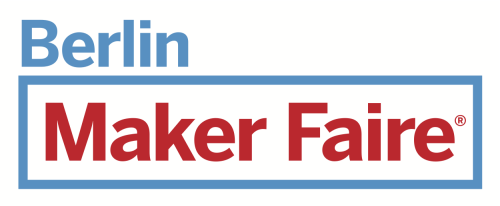Please come and join our DIYbio workshops on Saturday and Sunday, 10th and 11th of June at Maker Faire Berlin, Luckenwalder Str. 4–6, 10963 Berlin.
Saturday June 10
10:00 – 11:00 — Let it glow! (Mirela)
11:00 – 12:00 — Living Glitter (lusi)
13:00 – 14:00 — Algature (Fara)
15:00 – 16:00 — Pigments (Ale & Flavia)
17:00 – 18:00 — Mycorrhizal networks (miga)
Sunday June 11
10:00 – 11:00 — Living Glitter (Lusi)
11:00 – 12:00 — Sustainable pigments (Ale & Flavia)
13:00 – 14:00 — Algature (Fara)
15:00 – 16:00 — Let it glow! (Mirela)
17:00 – 18:00 — Mycorrhizal networks (miga)
DIYBio is world-wide initiative to bring the biological knowledge from inside laboratories to the people outside, through a series of workshops and artistic projects. Biohacking has been inspiring many people to develop new approaches to science, as well as to connect deeper to themselves and the organisms around.
TopLab is a place for curiosity, creativity and interdisciplinary research. In TopLab, everyone has access to biotechnology and can develop their own projects. TopLab encourages the exchange of knowledge and experience, building bridges between people that are usually not involved in labs.
More info: https://maker-faire.de/berlin/
——- workshop 1——-
Let it glow! (Mirela Alistar)
Description:
Living in a voluntary relationship with the sea animals, Photobacterium has developed a social sense directly connected to its bioluminescence. In this open workshop, everyone will influence the social life of Photobacterium in an attempt to make it glow. Practically, you will learn to culture the bacteria on agar plates and then grow it at home until it glows beautifully. Everyone is welcome to the workshop, that means also children and young adults. No prior knowledge is needed and all the materials are provided by us.
Price: 5 Euro
About Mirela:
Mirela Alistar is a biohacker actively involved in biotech research.
——- workshop 2——-
Mycorrhizal networks or how do I hack plant conversations (Mindaugas Gapsevicius)
Description: Fungi are able to biodegrade organic and inorganic elements, including slowly degradable elements such as cellulose, toxins, and heavy metals. Fungi are also known for being able to transport chemical elements within their networks and their ability to exchange chemical elements with plants.
During the workshop, you will learn how to cultivate Oyster mushrooms and its mycelium. We will also think about possible uses for home and industry.
Price: 5 Euro
About Miga:
Mindaugas Gapševičius (miga) is a PhD candidate and an artistic associate at the Bauhaus University, Weimar. Interested in DIYbio and beyond.
——- workshop 3——-
Algature (Fara Peluso)
Description: Diatoms are photosynthetic microalgae that produce 20% of the oxygen on Earth. They are the most important little organisms that most people never heard of! Although tiny, diatoms play an immense role in keeping the planet’s ecosystem working. They’re important mediators of carbon and oxygen cycles, an integral component of marine food webs and the principal cycles of silica, which constitutes 25% of the Earth’s crust.
The workshop will show the general diatoms’ features (photosynthesis, aspects, colors…) and how we can cultivate them at home.
In the second part I will present projects that illustrate the infinite and interesting possibilities of BioDesign.
Price: 5 Euro
About Fara:
Fara is an artist designer interested in the relationship between the human and its environment.
——- workshop 4——-
Sustainable pigments (Flavia Barragan and Alessandro Volpato)
Pigments are molecules that can be found in great abundance and diversity in plants. In this workshop you will learn to extract the from the plants and understand how to see them into a DIY spectrometer.
Fee: 5 Euro
About Flavia Barragan
Scientist and Interdisciplinary Researcher, specialized in Medicinal Chemistry, currently focussed on Biomaterials and in the intersection of art, science and Technology.
About Alessandro:
Biologist that works in the bioinnovation field
——- workshop 5——-
Living Glitter (Lusi Ajonjoli)
Let’s explore a symbiosis of microbiology and human-machine craft. A set of jewellery pieces will be on display glittering with photobacterium phosphoreum. The pieces of jewellery are made from acrylic and light optic fibers using a 3d printer and laser cutter. This installation will get you exploring the world of citizen science and digital fabrication. We’ll get hands on with some strategies for implementing into any design.
fee: 5 euro
About Lusi: Lusí is an independent biotechnologist and artist co-creating with biology.


Pingback: From Biohacking to Modded Drones and Tapestries, Maker Faire Berlin Has it All | Make: